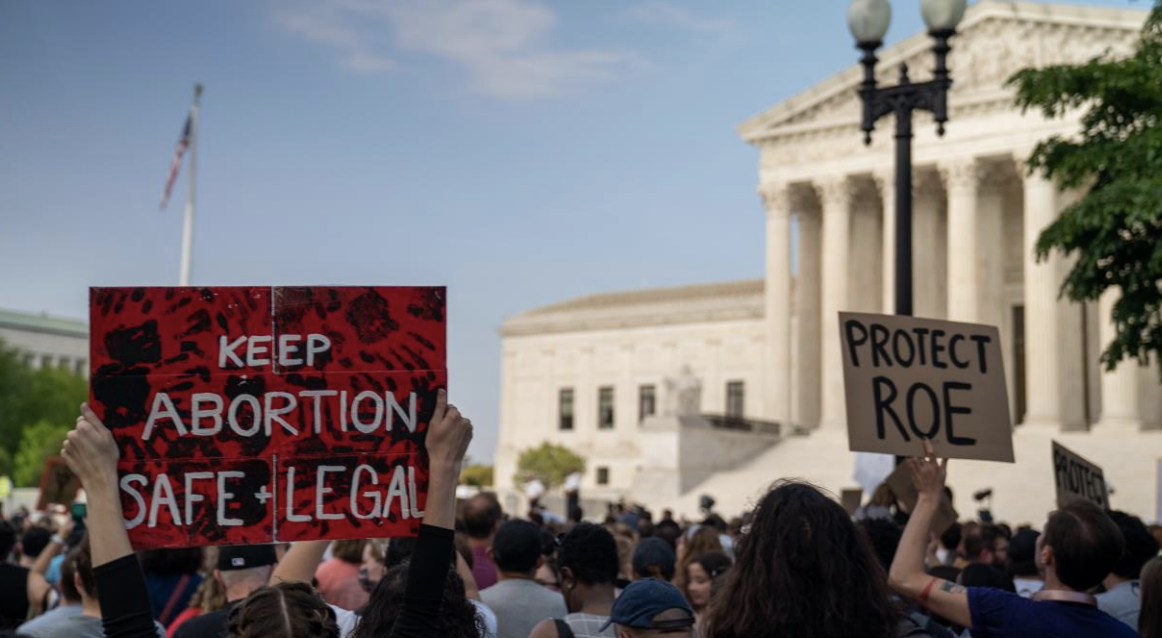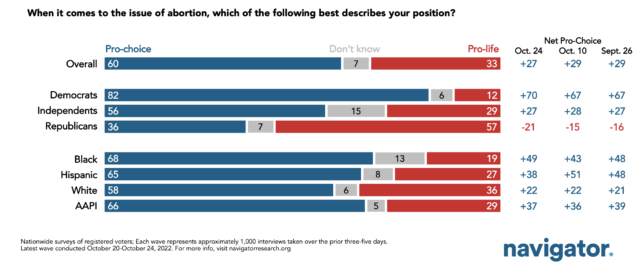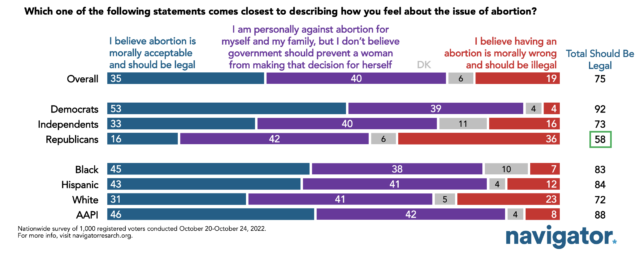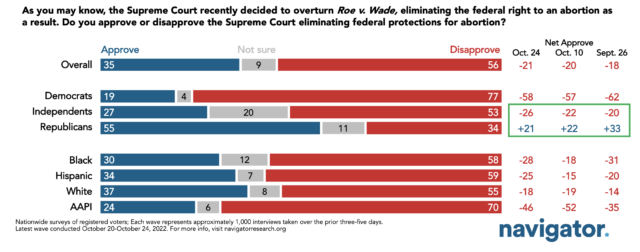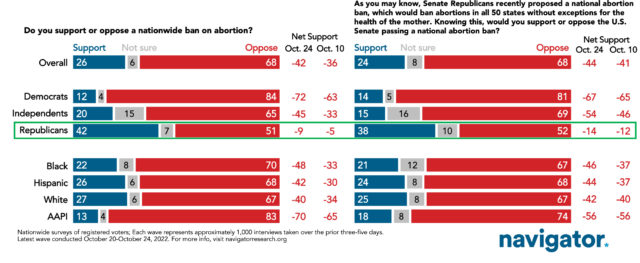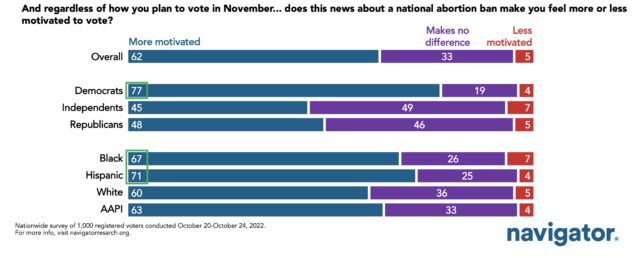Key takeaways
- Americans remain pro-choice. Three in four say abortion should be legal or that the government should not be able to prevent a woman from making the decision for herself.
- Bipartisan majorities continue to oppose a nationwide abortion ban, including Senate Republicans’ proposed abortion ban.
- Nearly four in five Democrats and seven in ten Black Americans and Hispanic Americans say the prospect of a nationwide abortion ban makes them more motivated to vote.
Americans Remain Pro-Choice
Majorities of Democrats (82%) and independents (56%) say they are pro-choice, as do more than one in three Republicans (36%).
Three in Four Say Abortion Should Be Legal – Even If Two in Five Are Personally Against Abortion for Their Own Family
Bipartisan majorities of Americans say that abortion should be legal, including 58% of Republicans, with one in three Americans saying they believe abortion is both morally acceptable and should be legal.
The Supreme Court’s Decision on Roe v. Wade Remains As Unpopular As When It Was Overturned
Majorities of Democrats (77%) and independents (53%) disapprove of the Court’s decision to overturn Roe. Support for the decision has fallen by 12 points (from net +33 to +21) among Republicans and 6 points (from net -20 to net -26) among independents since September
Nearly Seven in Ten Oppose a Nationwide Abortion Ban, Including with Republican Proposal as Context
Majorities of every partisan and racial group – including Republicans – oppose a nationwide ban on abortion, including after learning about the ban that Senate Republicans have specifically proposed.
Three in Five Remain More Motivated to Vote in the Context of an Abortion Ban
Large majorities of Democrats (77%), Hispanic Americans (71%), and Black Americans (67%) say a national abortion ban makes them more motivated to vote.
About The Study
Global Strategy Group conducted public opinion surveys among a sample of 1,000 registered voters from October 20-October 24, 2022. 100 additional interviews were conducted among Hispanic voters. 78 additional interviews were conducted among Asian American and Pacific Islander voters. 100 additional interviews were conducted among African American voters. 104 additional interviews were conducted among independent voters.
